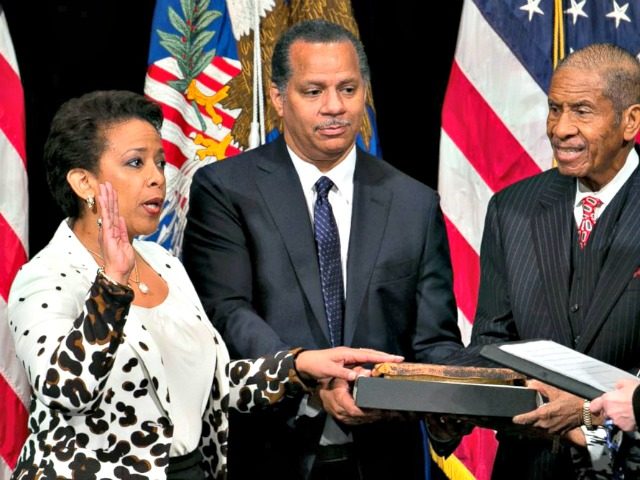Attorney General Loretta Lynch has formally refused to answer questions from Congress about the Obama Administration’s huge cash payments to Iran. Senator Marco Rubio (R-FL) and Rep. Mike Pompeo (R-KS) described Lynch’s response as “unacceptable,” and said she has chosen to “essentially plead the Fifth.”
Rubio and Pompeo sent Lynch a letter on October 7, in which they noted the Treasury Department had “finally informed Congressman Pompeo that it received approval from the Justice Department” for the $1.7 billion in cash paid to Iran.
The intrepid representatives thought the head of the Justice Department might therefore have the answers they were seeking about Iran’s controversial payoff, so they wrote Lynch and asked what was included in the DOJ “approvals,” who issued them, and which Treasury Department officials came to DOJ seeking approval. They also asked if the Justice Department’s General Counsel was involved in the process, and requested copies of any legal opinions rendered by the General Counsel or other Justice Department lawyers.
“Did your Department raise any concerns that the cash payment could be perceived as a ransom?” Rubio and Pompeo asked Lynch. “It has been reported that the same State Department official signed the paperwork for this cash payment, the dropping of charges on 21 Irnaians, and the delisting of two Iranian banks.”
Rubio and Pompeo were suspicious that even more unsavory aspects of the Iran deal were being kept hidden from Congress and the American people. One of their last questions to Lynch was, “Was the Justice Department consulted or did it clear on any documentation that indemnified the Federal Reserve or foreign financial institutions, including foreign central banks involved in this transaction? What is the extent of any assurances provided that would prevent American victims of Iranian terrorism from seizing Iranian assets at these institutions?”
They followed up by asking if any more payments to Iran would be authorized under the same statute, a possibility clearly implied by Iranian President Hassan Rouhani, and pointedly observed the statute requires “certification by the Attorney General” that such payments are “in the interest of the United States.”
“Please explain how sending billions of dollars in cash to the world’s foremost state sponsor of terrorism is in our country’s best interest,” the Senator and Congressman asked AG Lynch.
Lynch decided not to answer them at all.
The response came through Assistant Attorney General Peter Kadzik, who wrote on October 24th that the Justice Department “fully supported the Administration’s resolution of several issues with Iran, including the settlement of the Hague Tribunal claim involving the Foreign Ministry sales fund, as well as the arrangements that led to the return of the U.S. citizens detained in Iran.”
However, Kadzik said documents relevant to Rubio and Pompeo’s questions “contain sensitive information that is not appropriate for public release,” and that “disclosure of this information beyond members of the House and Senate and staff who are able to view them could adversely affect the diplomatic relations of the United States, as well as the State Department’s ability to defend claims against the United States that are still being litigated at the Hague Tribunal.”
On Friday, the Washington Free Beacon published Rubio and Pompeo’s angry reaction.
“It is frankly unacceptable that your department refuses to answer straightforward questions from the people’s elected representatives in Congress about an important national security issue,” they wrote to Lynch. “Your staff failed to answer any of our questions, and instead provided a copy of public testimony and a lecture about the sensitivity of information associated with this issue.”
“As the United States’ chief law enforcement officer, it is outrageous that you would essentially plead the Fifth and refuse to respond to inquiries regarding your role in providing cash to the world’s foremost state sponsor of terrorism,” Rubio and Pompeo wrote.
They also reminded Lynch that the actions of her department “come at a time when Iran continues to hold Americans hostage and unjustly sentence them to prison,” most likely referring to the sentencing of Iranian-American father and son Baquer and Siamak Namazi.
Rubio and Pompeo simply rejected Lynch’s response, attaching a fresh copy of their 13 questions from October 4th and “respectfully insisting” she answer in an “honest and thorough way.”
“As elected representatives of the American people, we take our professional responsibilities seriously and hope you will do so as well,” they concluded. “You owe Congress and the American people answers to these questions. We look forward to receiving a serious response no later than November 4.”

COMMENTS
Please let us know if you're having issues with commenting.